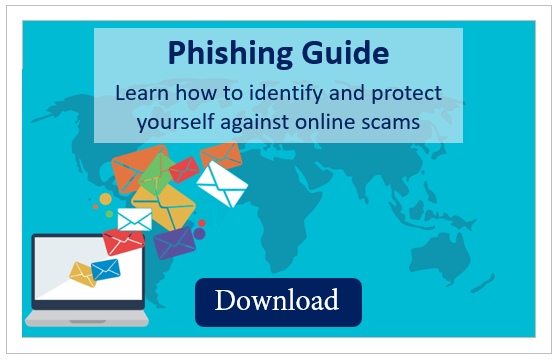Ghosts In the Machine: The Eternal Life of Your Digital Assets
%20-%20PNG%20-%204-11-17-2.png?width=945&name=Image%20-%20Blog%20Image%20-%20Mike%20-%20Ghosts%20in%20the%20Machine%20The%20Eternal%20Life%20of%20Your%20Digital%20Assets%20-%20Ghost%20Coming%20Out%20of%20Computer%20(Colored)%20-%20PNG%20-%204-11-17-2.png)
Have you ever thought about what happens to your Facebook account after you’re gone? It isn’t just idle speculation. With over 1.8 billion active monthly users on Facebook, elementary statistics compel the realization that surely a few among us are on the brink of joining the ranks of the departed…probably some by the time you finish reading this post.
What about a Shutterfly account with all the cherished family photos, a LinkedIn account with your catalogue of professional contacts, or that Ancestry.com account where you spent nearly 2 years painstakingly documenting you and your kin really are lineal descendants of Geoffrey the 14th Archduke of Lower Saxony? Got a little stash hidden away in a PayPal account? Who knows about it besides you? Maybe there are some Twitter accounts or online identities you’d actually prefer auto-destruct upon your demise because you posted a few too many flaming comments about the idiocy of the school board or the local road commission.
In a world where Venmo accounts can pay for triple lattes and Bitcoins are exchanged for luxury yachts, frequently overlooked items like virtual character identities for online games can also have surprising market value. Don't believe me? One such virtual character identity for the popular Game of War is currently listed at $1,705.48. Value it seems is in the eye of the beholder. And in this digital age, it’s gaining access to that value after your death that increasingly is becoming a point of contention.
While it’s been said there is no way to ever completely erase a digital past, that doesn’t insure you (or someone you trust) will always have access to your digital assets. It’s more than simply forgetting your username or password. Even though your social media accounts probably range somewhere between the sublime and the ridiculous, there are other online accounts that control or have access to personal or family assets having substantial value.
Bank accounts, credit cards, utility bills, brokerage statements, insurance policies, medical records, even overdue library books…much of our transactional net worth these days is directly tied to the digital realm. And the monetary value of digital assets or assets controlled by exclusively digital access is on the rise. By some counts, digital asset values average nearly $35,000. Just who has access or control of those assets when you are no longer capable of executing the login routine is something the courts are being asked to decide with increased frequency.
Presumably, anyone you select as the executor of your estate (or to act on your behalf in the event you become incapacitated) ought to have access to all your assets in order to discharge their fiduciary obligations. That may not be not as easy at it sounds. In January of 2015, the State of Delaware was the first to pass model legislation granting fiduciaries broad authority over digital accounts. At the same time, a number of high profile social media outlets including Yahoo and Facebook issued statements vigorously opposing this legislation claiming access to the content of your accounts is governed by agreed upon privacy policies and the terms and conditions each user accepted as a condition for access to the service in the first place. Clearly, the battle lines are only beginning to be formed.
Like all financial planners and investment advisers, we’re mindful that protection of client assets (in whatever form those assets happen to take) is of paramount importance in order to maintain the integrity of your carefully developed plans. Want some practical advice? Here’s two things you can do right now:
Install password vault software.
These web based applications not only store your login credentials, they actively encourage good habits with regard to password security. Don’t forget to install the software on your smartphone. With so many apps out there, chances are your smartphone has access to just as many important sites as your desktop PC. When it comes to password vault applications, there are a lot of good choices out there with an impressive array of features for a variety of budgets (including free). To simplify matters, make sure you pick a package that at least has the option to share selected credentials with trusted contacts. A more advanced feature available on some platforms is the ability to list an emergency contact who can request your credentials if you die or become incapacitated. Equally important – review and update these permissions regularly to make sure they still conform to your needs.
Consider drafting a digital will and amending your DPOA.
While it’s important to understand that including digital directives among your estate planning documents might not be sufficient to ensure your wishes are fulfilled, it’s better than complete silence. Bear in mind it’s probably going to take the courts some time to erect a coherent body of settled case law with respect to digital assets and access rights to digital accounts. In the interim, courts are likely to at least begin taking into account whatever digital directives you and your attorney took the time to write out in advance.
Is this perfect? Of course not. But left completely to their own devices, the ghosts in your machine might wind up channeling zombie directives of a very different character than what you had in mind. That thought ought to frighten anyone out of complacency.
Michael Reid, CFA is a Managing Director and Partner at Exchange Capital Management who still thinks the terms "digital assets" has something to do with all his fingers and toes. The opinions expressed in this article are his own.
Comments
Market Knowledge
Read the Blog
Gather insight from some of the industry's top thought leaders on Exchange Capital's team.
Exchange Capital Management, Inc.
110 Miller Ave. First Floor
Ann Arbor, MI 48104
(734) 761-6500
info@exchangecapital.com




